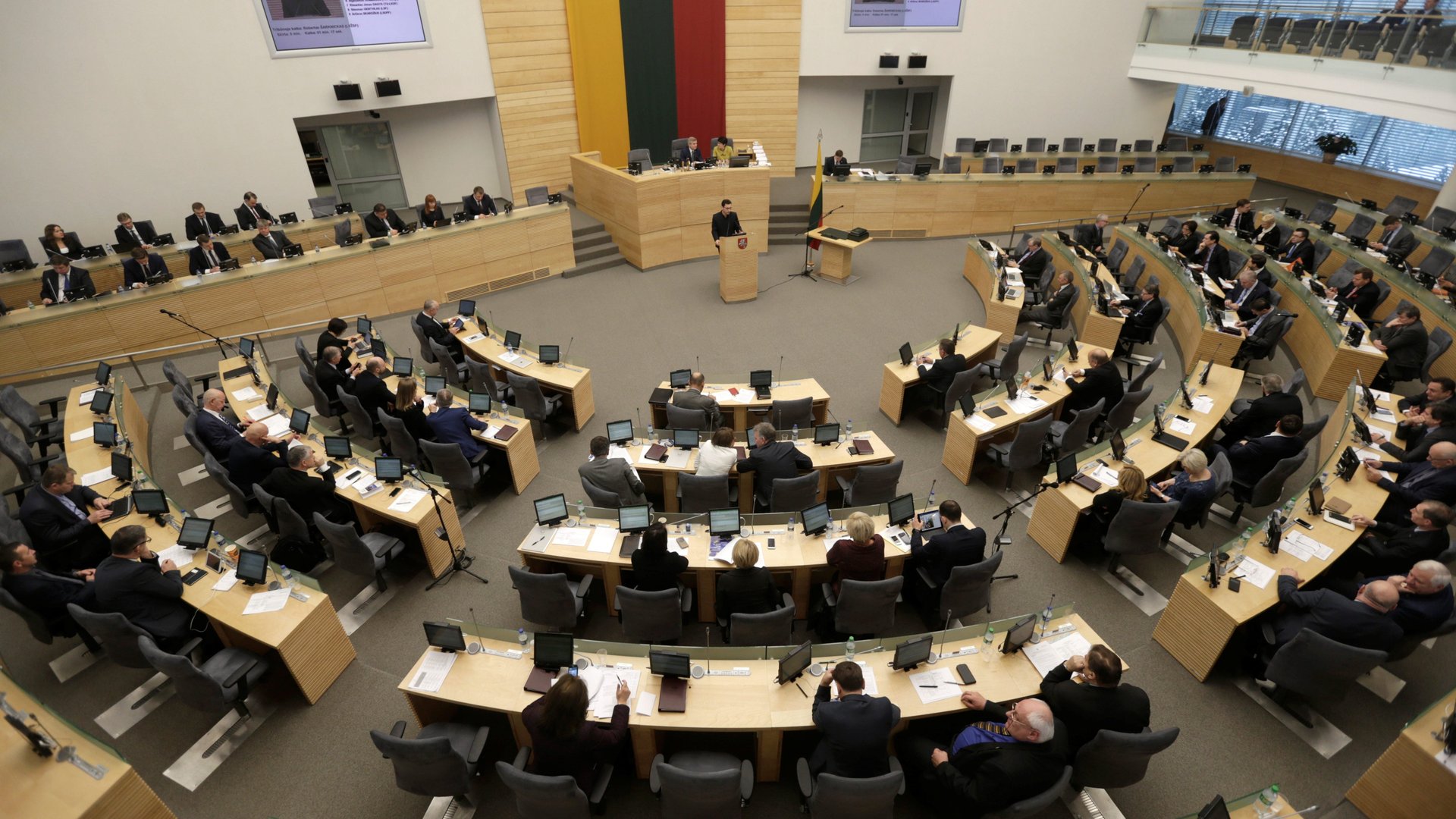Lithuania will give a four-day workweek to parents with young kids
The country's parliament passed legislation to grant a four-day workweek to public sector employees with kids under the age of three


Lithuania is the latest country to try out a four-day workweek, thanks to a policy passed by lawmakers yesterday (April 21).
Under the new policy, which will take effect next year, public-sector employees with children under the age of three will be allowed to work 32 hours a week without any reduction in their pay. A standard workweek in Lithuania is 40 hours.
Addressing the gender-wage gap
The legislation was proposed by the speaker of Lithuania’s parliament, Viktorija Cmilyte-Nielsen, who said the four-day workweek would help the public sector better compete for talent against private-sector companies that offer higher pay. She noted that the legislation is also intended to address a persistent gender pay gap: Female employees in Lithuania earned 13% less per hour on average than men in 2020, on par with the EU wage gap, according to Eurostat.
Studies have shown that the gender pay gap tends to widen after women have children. This so-called “motherhood penalty” is driven by a number of factors, including the fact that women often cut back on hours when they have kids, and may take a step back from their careers to let a spouse devote more time to a higher-paying job. A four-day workweek like Lithuania’s has the potential to address this imbalance by giving both men and women the opportunity to spend more time at home with young kids.
Lithuania’s four-day workweek is limited
The number of countries testing out some version of the four-day workweek has grown over the past year, driven in part by promising trials such as one in Iceland that found productivity remained the same or even improved when employees reduced their hours.
🎧 For more intel on companies testing shorter weeks, listen to the Work Reconsidered podcast episode on the four-day workweek. Or subscribe via: Apple Podcasts | Spotify | Google | Stitcher.
Spain launched a four-day workweek pilot program last year with about 200 participating companies, while the UK plans to begin a six-month trial program for some 3,000 workers in June. Belgium passed labor reforms in February that will allow employees to work longer hours in exchange for a three-day weekend with the agreement of their employer.
Considering that less than 30% of Lithuanian employees work in the public sector, the country’s four-day workweek trial is limited in scope. But the policy could be an important litmus test for working parents, and provide more data on the potential of the four-day workweek to improve gender equity.